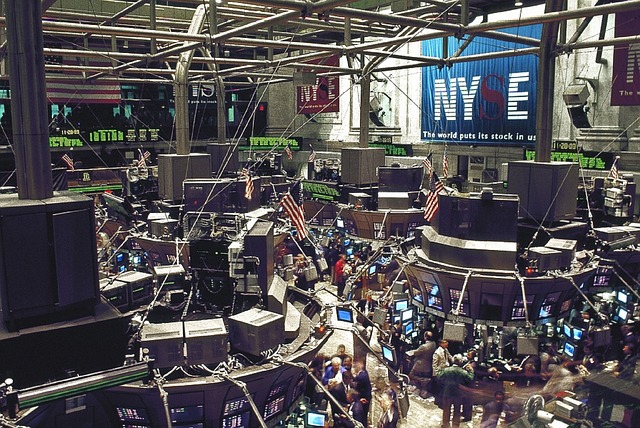Swissquote Bank: Could ugly US jobs data weigh on positive market mood?
Swissquote Bank: Could ugly US jobs data weigh on positive market mood?

By Ipek Ozkardeskaya, Senior Analyst at Swissquote Bank
US and European equities closed Thursday’s session comfortably higher, and futures rose on prospects of business reopening, even though the White House stood against issuing specific guidelines on when and how to kick start the economic activity on fear that they could be too prescriptive, and force businesses to come back too early and cause more health and economic damage in the long run.
But leaders can’t wait for the economy to rerun, even if it means a certain cost of life. As such Donald Trump is pushing Texas to reopen businesses despite rising cases, and Boris Johnson mentioned that some relaxation measures could be on the menu starting from next Monday, versus the expectations that the UK would stay closed until the first week of June.
On the data deck, the US jobless claims rose by more than 3 million last week, slightly higher than the expectations, paving the way for what’s to be printed later today. The US nonfarm payrolls are expected to confirm 22 million job losses in April and the unemployment rate is expected to have shot up from 4.4% to 16% during the same month. With numbers this gigantic and far from seasonal and even crisis averages, it is no longer a matter of whether the number is better or worse than the expectations. It is a matter of whether it has been already priced in the asset prices, and by how much. For most of the economic and corporate data that has been flowing in recently, investors consider that the asset prices already factor in the terrifying numbers - therefore any knee jerk reaction remains contained, unless the deviation from the consensus of expectations is significative. If the trend is your friend, then a further recovery in asset prices is where you should be looking for, despite the devastating economic and corporate figures.
The Nasdaq already recovered more than 80% of losses from the coronavirus-led sell-off, as the rapid democratization of remote working and rush to technology services were fueled with the global lockdown. If the rise in tech activity has been a one-off move, it is not said that a correction would wipe away gains; in most cases, it could only mean that these companies will simply have a larger organic basis.
In the currency markets, the US dollar is down on the back of an untouched risk appetite, but the US treasuries remain in demand. The US 10-year yield remains capped near the 0.70% mark.
The USDJPY attracted buyers near the 106-support, as the USDCHF reached the 200-day moving average (0.9785).
Gold is better bid above the $1700 per oz, as we doubt that the recent positive correlation between gold and risk assets could also be an increased hedge against the possibility of a swift downside correction in equities. But buyers continue defying the bad economic and corporate data and push stock indices higher with a solid determination.
The EURUSD rebounded from 1.0766 on the back of a softer US dollar and the European Central Bank (ECB) President Lagarde’s defense of the monetary policy amid the German court decision that the massive PPSP purchases may be unproportionate, hence partially illegal. Lagarde blinked at investors saying that the ECB will give the necessary financial support ‘undeterred’ and added that the principle of ‘proportionality’ is already a factor in ECB’s decision making. Given the ECB’s mandate to revive the rock-bottom Eurozone inflation, the amount of bond purchases could be adequate, however, in absolute terms, the ECB holds a massive pool of government debt, and its balance sheet continues ballooning by the day. And in reality, it somewhat comes down to the central bank printing money to finance government debt. If the euro remains strong amid the massive cash printing, it is because investors have blind faith in ECB and the euro.
But, despite Lagarde’s determination to fight back the German court decision, gains in euro will likely remain capped below the 1.10 mark, as the ECB’s justifications are yet to be approved by Germans, if not the entire ECB program could collapse, pulling the rug from under the European economy at the worse imaginable time. Solid intermediate offers are eyed prior to 1.09.
Cable bounced to 1.24 after yesterday’s dip at 1.2265 on hope that at his speech on Sunday, Boris Johnson may relax some confinement measures starting from next Monday. But the overall expectation is the extension of most measures until the first week of June.
Today, Britain and France are closed for bank holiday. DAX is poised for a positive start following a risk-on overnight session.
Finally, negotiations between the US and China have been advanced to next week, after US President Donald Trump threatened to walk away from the phase-one deal using the fact that China hasn’t purchased the equivalent of whatever they had promised in the first four months of the year. Of course, China had a good excuse to fall behind its schedule, but it is always difficult to tell whether they could make their voice heard. On the other hand, only China could make a miracle happen by purchasing decent amounts of US farm products when it is the most needed. Henceforth, we remain positive regarding the US - China talks, even though the Trump risk will remain a permanent shadow on negotiations due to the President’s unpredictable temperament and unexpected comments and tweets.


